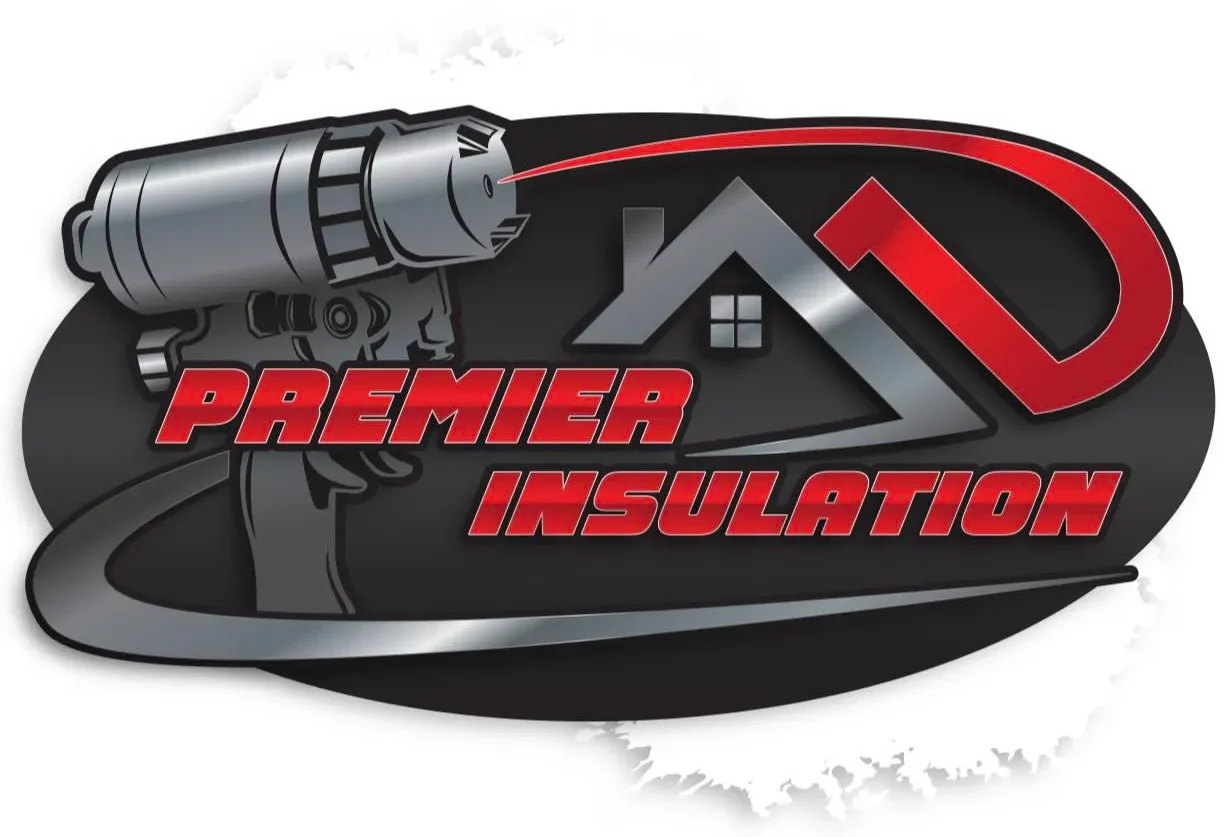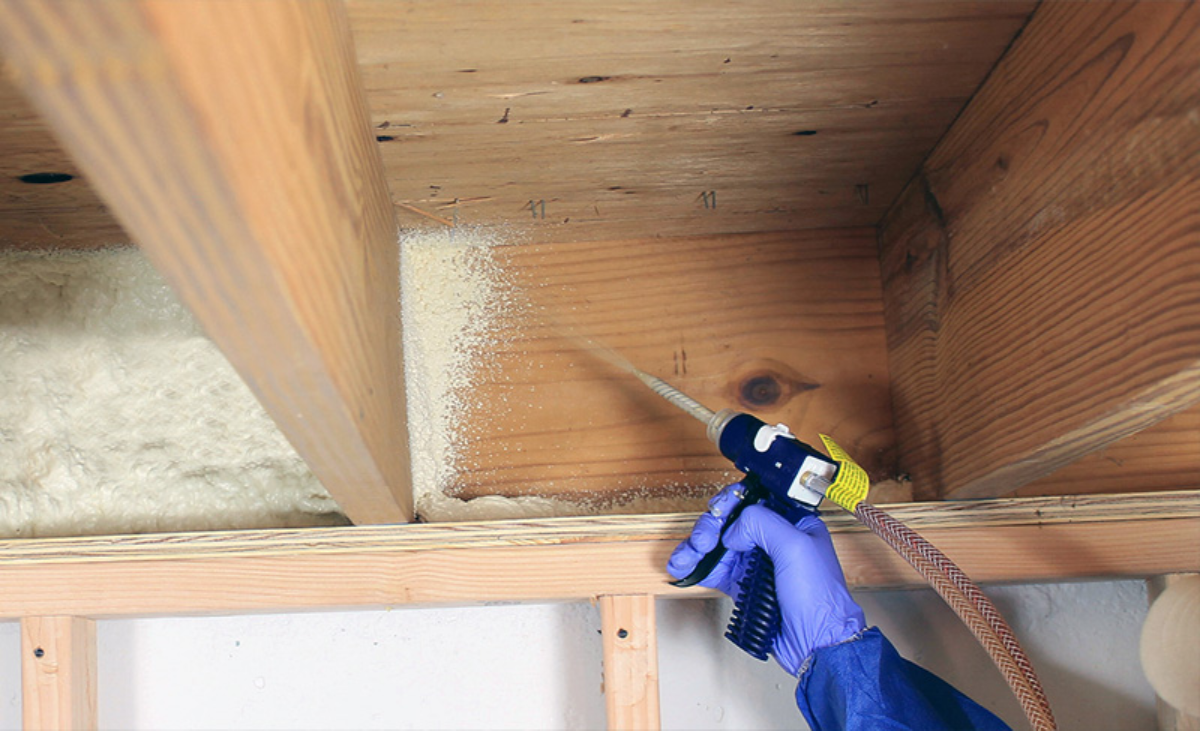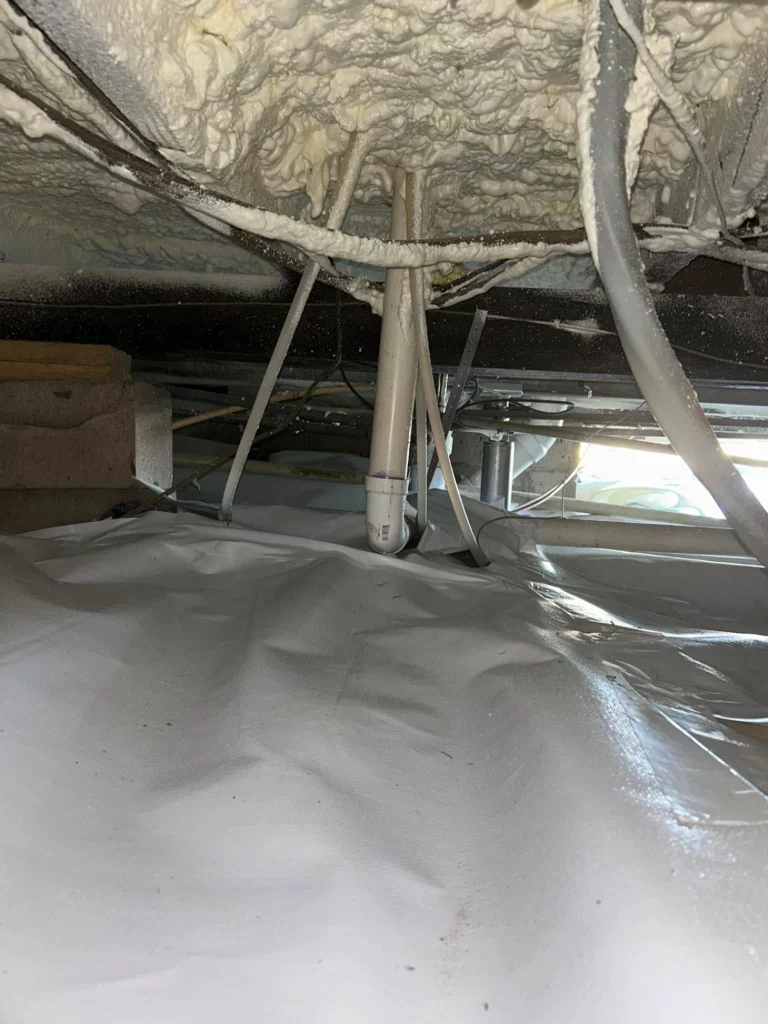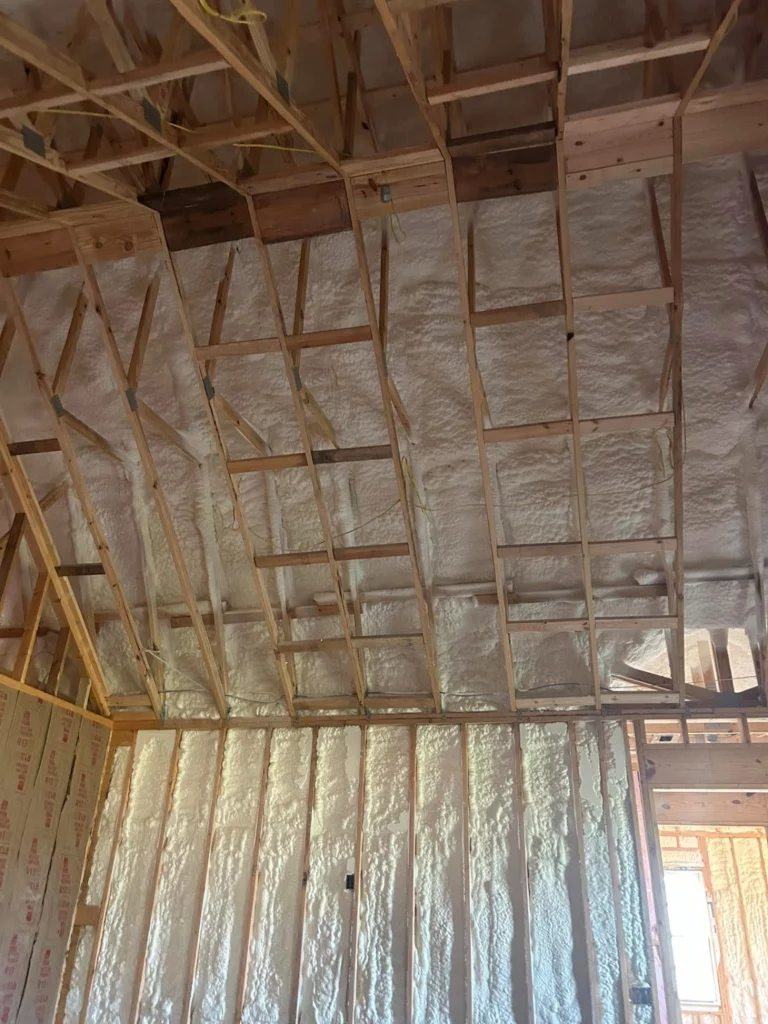Why Moisture and Air Leaks Go Hand in Hand
In a humid place like Tallahassee, sealing your home against air leaks does more than just improve energy efficiency—it helps protect your home from moisture damage. That’s because warm, damp air from outside can sneak in through small cracks and gaps, especially around windows, doors, and in attics or crawlspaces.
When that humid air hits cooler surfaces inside, it turns into condensation. Over time, this moisture buildup can lead to mold, rot, and damage to walls, flooring, or insulation. Sealing those hidden leaks is one of the simplest and most effective ways to cut down on moisture problems and keep your home healthier.
Learn how Premier Insulation can help protect your home from moisture damage with proper air sealing.
The Tallahassee Climate Factor
Tallahassee’s weather makes air sealing more important than it might be in other parts of the country. Our long, hot summers and high dew points mean that the air is packed with moisture most of the year. Every time outdoor air leaks into your home, it brings that humidity along with it.
Many older homes in the area were built before air sealing was standard practice. Even newer homes can have issues—leaky ductwork, gaps around plumbing or wires, and unsealed attic access points. All of these can make your home feel muggy and put extra pressure on your HVAC system.
A Smarter Way to Manage Moisture
It’s much easier to stop moisture from entering your home than to deal with it after it’s already inside. Sealing off entry points helps control humidity, especially when it’s paired with proper insulation.
Here’s what you’ll notice with a well-sealed home:
- More stable indoor humidity levels
- Lower chances of mold or mildew
- Less wear and tear on your HVAC system
- Protection against moisture damage to your walls and flooring
In short, air sealing gives you a more comfortable home—and helps you avoid expensive repairs later. to see how they pair with air sealing for year-round comfort.
Less Leaking, More Saving
Every small air leak forces your cooling system to work harder. And in Tallahassee, where your air conditioner also has to pull moisture out of the air, that extra work adds up fast.
Air sealing reduces wasted energy by:
- Stopping conditioned air from escaping
- Reducing hot and cold spots in rooms
- Making indoor temperatures more consistent
- Shortening HVAC run times
As a bonus, sealing up leaks can extend the life of your system and help keep your energy bills in check.
Keep the Bad Stuff Outside
When outside air seeps in, it’s not just moisture you have to worry about. That air often brings along dust, pollen, fumes, and other pollutants. If the air is coming in through crawlspaces or attics, it may carry mold spores or even rodent allergens.
Sealing your home helps block out those unwanted pollutants, giving your family cleaner, safer indoor air. It also works alongside your air filters and ventilation system to create a more breathable environment.
Attics and Crawlspaces: The Usual Suspects
These areas are among the worst offenders when it comes to air leaks. In Tallahassee, vented crawlspaces and unsealed attics let in a lot of humid air—especially during hot weather.
By sealing these spaces properly, you’ll reduce the stack effect, where hot air escapes through the top of your home and pulls in damp air from below. Some key areas to seal include:
- Gaps around plumbing and wires
- Rim joists and foundation cracks
- Recessed lighting and attic hatches
Lower Long-Term Maintenance Costs
Moisture can quietly damage your home over time. Warped wood floors, stained drywall, and peeling paint are all signs of long-term exposure. And because mold and water damage are common in Florida, air sealing is one of the best things you can do to protect your home—and your wallet.
It can also help lower the chance of mold-related insurance claims, which are often expensive and stressful to deal with.
Simple Improvements That Make a Big Difference
You don’t need a huge renovation to get started. Many homes benefit from a few simple updates, such as:
- Adding weatherstripping to doors and windows
- Caulking around trim and baseboards
- Sealing holes where cables, pipes, or ducts pass through walls
To find more hidden leaks, a home energy assessment using tools like thermal imaging or blower door tests can pinpoint trouble spots so you get the best results from your upgrades.
Why It’s Worth Hiring a Pro
While some sealing can be done on your own, a professional will go beyond the basics. As highlighted in our recent press release, Premier Insulation has completed numerous air sealing and insulation projects across Tallahassee, demonstrating our ability to handle even the most challenging homes. Our team uses the right tools and materials to seal areas that are hard to reach—and often overlooked.
While some sealing can be done on your own, a professional will go beyond the basics. At Premier Insulation, we use the right tools and materials to seal areas that are hard to reach—and often overlooked.
Our team will:
- Examine your whole home for air leaks
- Find and fix less obvious problems
- Seal attics, crawlspaces, ductwork, and more
This kind of thorough air sealing brings better comfort, better air quality, and better energy savings.
Make Your Tallahassee Home More Comfortable
In Florida’s humid climate, air sealing isn’t just helpful—it’s essential. When done right, it makes your home more efficient, protects it from moisture damage, and gives you cleaner air to breathe.
Ready to take the next step? Call Premier Insulation at (229) 843-6767 or email us at premiereinsulationga@gmail.com to schedule your in-home assessment.
FAQs
How much does air sealing typically cost?
Costs depend on the size of your home and the amount of work needed. Basic jobs may start around $300–$500, while full-house sealing can range from $1,000 to $2,500.
Is air sealing helpful even if I don’t upgrade insulation?
Yes. You’ll see immediate benefits, but pairing it with proper insulation offers the best results.
Will it help lower my energy bills?
Definitely, many homeowners save 10–30% on energy costs after sealing up air leaks.
Where should I seal first?
Start with areas like attics, crawlspaces, ductwork, windows, and doors—these are usually the biggest sources of leaks.





